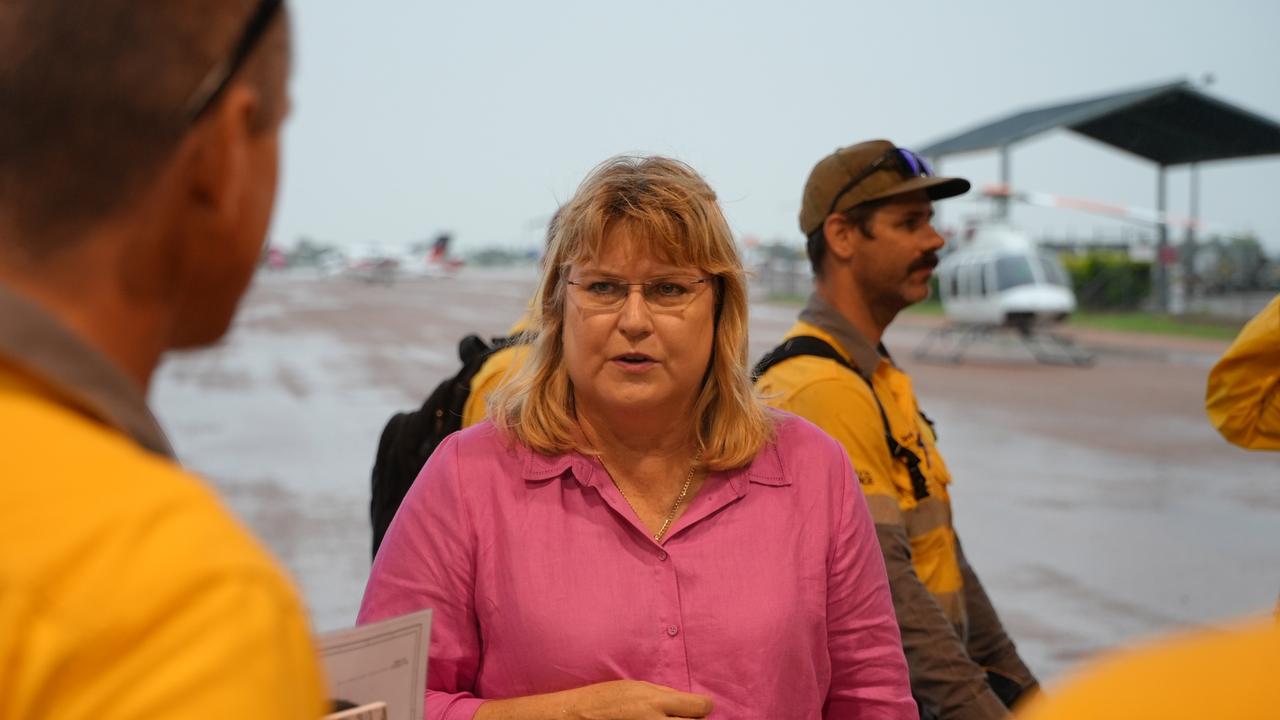What the recession means for the Western Downs
Community leaders weigh in on the Federal Government’s announcement that Australia is in a recession.

Dalby
Don't miss out on the headlines from Dalby. Followed categories will be added to My News.
THE Western Downs is feeling the brunt of the COVID-19 recession but keeping local jobs will be vital for the region's recovery.
Finance, Corporate Services and Business Strategy spokesman councillor Ian Rasmussen said the economy's stagnation means no new jobs are being made.
"Basically, what has happened is the last quarter our federal economy has retracted by 0.3%," he said.
"What a recession means is that the economy is either not growing or it's going down."
Cr Rasmussen said the government is printing extra money to keep the economy afloat, but it will need to be repaid through tax hikes or service cuts.
"That's a common thing for a government to do," he said.
"When you start rolling the printing press, it's that they're loaning money to the community."
He said it's important for the community to understand that there is no quick fix for a recession and it takes time for the economy to pick back up.
"It will have a big impact on every community," he said.
"In a recession, the economy's not growing so we're not producing any more jobs.
"If someone's out of a job in a recession, it's going to be very hard for them to find another one."
Cr Rasmussen said he was very concerned that if unemployment rises in the Western Downs, there will be less money to circulate to businesses.
He said there could be ways to speed up the economy's recovery, like successful seasons for agricultural production, and a rise in gas prices.
"It's also a great opportunity for us to promote the Western Downs for day trips," he said.
"This may be an opportunity for us to market ourselves more."
Cr Rasmussen believes that preserving jobs from Council will help keep the economy going, especially since they are a major employer in the Western Downs' smaller communities.
"Critics would say that Council should probably cut their rates, but my argument would be that Council should continue on as normal," he said.
"That would be the greatest boom to the economy."
He would also like to see more government assistance for youth training and education.
"Youth unemployment is always a major concern and I guess, youth have to go into some form of training," he said.
The best thing to do for the economy is to stimulate growth by supporting local businesses and keeping people employed.
But Cr Rasmussen said it wouldn't be an easy feat.
"It's going to be a hard road out," he said.
"The solution to that is that the locals can support every local business that they can.
"They can only do that if they have customers and they have revenue coming in."
Although the region is facing tough times, many people believe the economy will recover soon.
Chinchilla Community Commerce & Industry president Shannon McDermott said the Federal Government's announcement of a recession was not a shock to anybody in the community.
"Everybody knew things were on the decline," he said.
"It's normally about two consecutive quarters of negative growth."
Mr McDermott said the Chinchilla community is facing similar economic consequences compared to other towns across the country.
But he believes things might be starting to pick up again, saying some of the government's figures predict a 20% jump.
"I think the June quarter's going to be much bigger.
"There's already an increase of GDP from April to May.
"Things will start to get better now."
Dalby Chamber of Commerce president Rohan May said the situation has been brewing for a while and the declaration of a 'recession' reflects what people already know.
"I think we've been experiencing slow growth and a recession for some time," he said.
"The formal declaration of a recession just reflects the situation of businesses in Dalby."
Mr May is particularly concerned about the risks of youth unemployment.
He said young people will leave "regional centres" if there are no employment opportunities for them in town.
But Dalby has a competitive advantage according to Mr May, because of low house prices and relatively low unemployment rates before COVID-19.
"If we've got ongoing full-time work, there's going to be opportunities in these areas," he said.
"Anything that the hospitality and tourism sectors can do to get bums on seats is good."
Mr May would like the community to put the situation into perspective before becoming too concerned.
"We need to take a measured view of it," he said.
"Look at the US, look at Europe in terms of their attraction for the March quarter."


